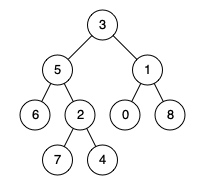LeetCode day26
Diffculty: Medium
227. Basic Calculator II
Topic: String
Implement a basic calculator to evaluate a simple expression string.
The expression string contains only non-negative integers, +, -, *, / operators and empty spaces . The integer division should truncate toward zero.
Example 1:
Input: "3+2*2"
Output: 7Example 2:
Input: " 3/2 "
Output: 1
Example 3:
Input: " 3+5 / 2 "
Output: 5Note:
- You may assume that the given expression is always valid.
- Do not use the eval built-in library function.
Approach1
my
def calculate(self, s: str) -> int:
# 初始化sign为 “+”,是因为开头是数字
num ,stack ,sign = 0 , [] , '+'
for i in range(len(s)):
ch = s[i]
if ch.isdigit():
num = num * 10 + int(ch) # 针对多位数
#根据当前数字之前的符号,来决定如何处理当前数值
# 并将处理后的数值压入栈中
if ch in "+-*/" or i == len(s)-1:
if sign == "+" :
stack.append(num)
elif sign == "-" :
stack.append(-num)
elif sign == "*":
stack.append(stack.pop() * num)
else:
stack.append(int(stack.pop()/num))
num = 0
sign = ch
return sum(stack)Approach2
230. Kth Smallest Element in a BST
Topic: Tree, Binary Search
Given a binary search tree, write a function kthSmallest to find the kth smallest element in it.
Note: You may assume k is always valid, 1 ≤ k ≤ BST’s total elements.
Example 1:
Input: root = [3,1,4,null,2], k = 1
3
/ \
1 4
\
2
Output: 1Example 2:
Input: root = [5,3,6,2,4,null,null,1], k = 3
5
/ \
3 6
/ \
2 4
/
1
Output: 3Follow up:
- What if the BST is modified (insert/delete operations) often and you need to find the kth smallest frequently? How would you optimize the kthSmallest routine?
Approach1
中序遍历
def kthSmallest(root: TreeNode, k: int) -> int:
def help(root,res):
if root == None:
return res
help(root.left, res)
res.append(root.val)
help(root.right, res)
res = []
help(root, res)
print(res)
return res[k-1]
# =====================
def kthSmallest(root: TreeNode, k: int) -> int:
def helper(node):
if not node:
return []
return helper(node.left)+[node.val]+helper(node.right)
return helper(root)[k-1]Approach2
236. Lowest Common Ancestor of a Binary Tree
Topic: Tree
Given a binary tree, find the lowest common ancestor (LCA) of two given nodes in the tree.
According to the definition of LCA on Wikipedia: “The lowest common ancestor is defined between two nodes p and q as the lowest node in T that has both p and q as descendants (where we allow a node to be a descendant of itself).”
Given the following binary tree: root = [3,5,1,6,2,0,8,null,null,7,4]

Example 1:
Input: root = [3,5,1,6,2,0,8,null,null,7,4], p = 5, q = 1
Output: 3
Explanation: The LCA of nodes 5 and 1 is 3.Example 2:
Input: root = [3,5,1,6,2,0,8,null,null,7,4], p = 5, q = 4
Output: 5
Explanation: The LCA of nodes 5 and 4 is 5, since a node can be a descendant of itself according to the LCA definition. Note:
- All of the nodes’ values will be unique.
- p and q are different and both values will exist in the binary tree.
Approach1
Approach2
238. Product of Array Except Self
Topic: Array
Given an array nums of n integers where n > 1, return an array output such that output[i] is equal to the product of all the elements of nums except nums[i].
Example:
Input: [1,2,3,4]
Output: [24,12,8,6]Constraint: It’s guaranteed that the product of the elements of any prefix or suffix of the array (including the whole array) fits in a 32 bit integer.
Note: Please solve it without division and in O(n).
Follow up: Could you solve it with constant space complexity? (The output array does not count as extra space for the purpose of space complexity analysis.)
Approach1
Approach2